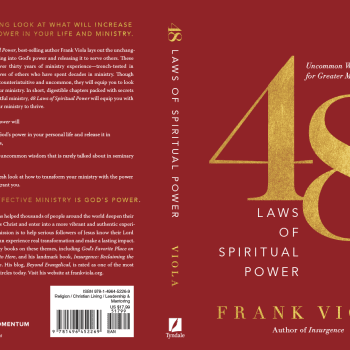In the furor that followed the consecration of the Right Reverend V. Gene Robinson as Bishop of New Hampshire some years ago, I spent more time on the phone and in front of cameras than I care to remember. But answering questions about the future of my denomination convinced me that Peter Jennings was right: "In the overwhelming majority of newsrooms in America there is an appalling ignorance of religion and faith."
For example, when he arrived, one reporter for a major TV news organization said, "Before we tape the interview, do you think that the Angelican Church is going to survive?" No, that is not a typo. He also proudly announced that he had been assigned by his news organization to serve as their correspondent in Jerusalem. I remember thinking, "You are so far in over your head."
Because of that encounter and some other experiences, I wasn't particularly surprised to find that the New York Times' Bill Keller compared believing in Roman Catholic doctrine with believing that space aliens have visited earth. I wasn't at all shocked to find that at this late date he focused on Republicans with religious beliefs—even though I can't remember a time when religious language hasn't appeared in campaigns for the presidency from every side. And I wasn't surprised that a day later the Times had to print a correction to the article, noting that Mr. Keller had failed to get some of his facts straight about the religion of the people he thinks reporters should ask tougher questions. After all, since when did you need to know something about a subject before you begin asking tough questions about it?
But, frankly, I don't think that the issue in Mr. Keller's case is a matter of ignorance. He is, by his own admission, a former, disenchanted, lapsed, recovering (?) Catholic—or, at any rate, a graduate of Catholic schools. He is also close enough to the political debates to know better. It is far more likely that the editorial was a shoot-from-the-hip piece of partisan politics and the details didn't really matter. Of course, in that regard Mr. Keller is not alone. Sadly, the cynical use of religion will be part and parcel of the grim months ahead leading up to the presidential election.
His article did take me back, however, to an encounter I had with five Muslims and a Syrian Christian at Washington National Cathedral where I served as Canon Educator. Our visitors were part of the Meridian Institute, a program studying the relationship between church and state, and it was my responsibility to discuss those issues with them as part of just one of many visits they made to religious institutions. Near the end of our conversation one of the Muslim participants asked me, "You are a religious man; why do you favor a secular government and wouldn't a Muslim government be far better, given our success in fostering religious tolerance?" I confess that I debated my answer just a bit longer than I might have under other circumstances and, as I hoped, the Syrian Christian—who was from the same part of the world as his Muslim colleague—jumped in, questioning the sweeping assumptions behind the question in a fairly animated fashion. That brought the conversation to a close.
A secular government does not eliminate religious tensions, of course. Nor does it eliminate the fears that constellate around political debates. Some fear that the secularity of our government will one day bring repressive measures to bear on religious institutions. Others are afraid that religious people will use it to impose their values on the country. And, from time to time, both sides attempt to make decisions of a national and legislative nature for all of us, decisions that are value-laden and function in a religious fashion, even if some of those values are not avowedly religious. (Compare, for example, Al Gore's rash comments last week equating the behavior of those who question global warming with racists.)
The moment our nation's founders eschewed a national religion and made our nation free for (not from) religion we were destined to have this debate—over and over again. But theirs was a strategic decision that threads the difference between secularist regimes bent on the destruction of religious opinion (like revolutionary France) and theocracies built on the destruction of all beliefs but its own.





